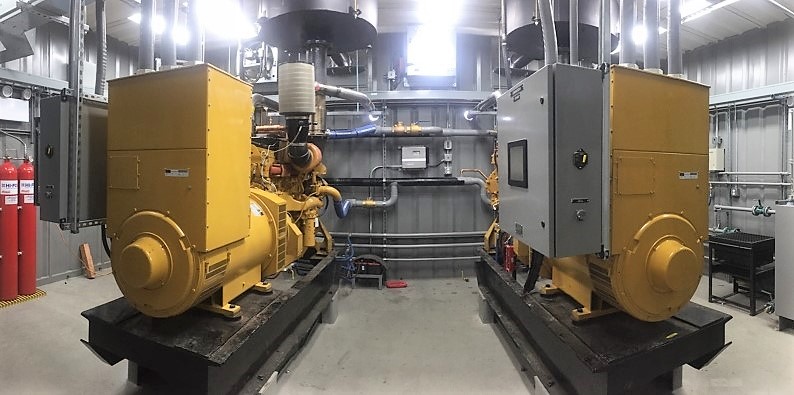
A hydroelectric plant for a small Southeast Alaska community is a step closer to reality. Gov. Bill Walker included funding for Kake’s Gunnuk Creek project in his capital budget proposal.
Kake is a village of about 600 people on Kupreanof Island, about 100 miles southeast of Juneau.
It gets its power from diesel generators, which makes it expensive.
Officials have been looking for alternatives for years.
The most likely option, at this point, is a small hydroelectric project using water from nearby Gunnuk Creek.
“It is shovel-ready,” Jodi Mitchell said. She’s CEO and general manager of Inside Passage Electric Cooperative, a nonprofit group that also runs systems in Hoonah, Angoon, Klukwan and the Chilkat Valley.
Mitchell said Gunnuk Creek, if built, will be the third such project for its communities.
Two more are on the list.
“We have an opportunity with these hydroprojects to fix a problem and completely get ourselves off diesel,” Mitchell said.
Gunnuk Creek is ready to be built. but it’s been stalled for several years. Now, it’s included in the governor’s spending plan for the next budget year.
The nearly $4 million isn’t enough to complete all the work, but it’s a solid start.
Mitchell hopes to get additional funding through a federal grant. She said the cooperative could also borrow the remaining $3 million.
Kake is represented in the state Senate by Bert Stedman, a Sitka Republican. He supports construction, but sees some issues.
“My concern with this project is that we build Gunnuk Creek, but it’s on a postage stamp rate amongst other communities,” Stedman said. “And I’m not sure how much the communities, including Kake, are going to see their utility rate impacted.”
The rate is based the average of costs for all of the electric cooperative’s customers, which means Kake will only see some of the benefits of cheaper electricity.
But Mitchell said customers there will still pay lower bills.
“I believe now that the economics of that, even if we were to borrow the money, would still result in a small rate reduction for our consumers, our member owners,” Mitchell said.
For years, officials hoped Kake’s needs would be met by a new, 60-mile power line to Petersburg, which would connect to a regional grid linked to two large hydroprojects.
The line and an accompanying road have been studied intensely. And, it has some of the permits it needs. But it’s been shelved because the tens of millions of dollars it would cost isn’t there.
The power line project recently lost a $2 million grant from the Alaska Energy Authority. And some on the hydro agency that held the grant hoped the money could be spent on Gunnuk Creek or another project in the region.
Energy authority spokeswoman Katie Conway said that’s not how it works.
“The Gunnuk Creek project is not connected at all to the Kake-Petersburg intertie,” Conway said. “It is unique, the project was high enough on the list through the solicitation process and the application-vetting process required in order for projects to get funding.”
Gunnuk Creek will use a dam built last decade to provide water to Kake. The structure was also designed to be used for a hydroproject.
Mitchell said it needs a 2,100-foot penstock, or large pipe, to carry water down to generators. She said they’ll provide more than half of Kake’s electricity. The rest will come from its diesel power plant, which was recently upgraded to be more efficient.
The penstock will also provide water for the local hatchery. That was purchased last spring by a regional aquaculture association based in Sitka.
Ed Schoenfeld is Regional News Director for CoastAlaska, a consortium of public radio stations in Ketchikan, Juneau, Sitka, Petersburg and Wrangell.
He primarily covers Southeast Alaska regional topics, including the state ferry system, transboundary mining, the Tongass National Forest and Native corporations and issues.
He has also worked as a manager, editor and reporter for the Juneau Empire newspaper and Juneau public radio station KTOO. He’s also reported for commercial station KINY in Juneau and public stations KPFA in Berkley, WYSO in Yellow Springs, Ohio, and WUHY in Philadelphia. He’s lived in Alaska since 1979 and is a contributor to Alaska Public Radio Network newscasts, the Northwest (Public Radio) News Network and National Native News. He is a board member of the Alaska Press Club. Originally from Cleveland, Ohio, he lives in Douglas.




